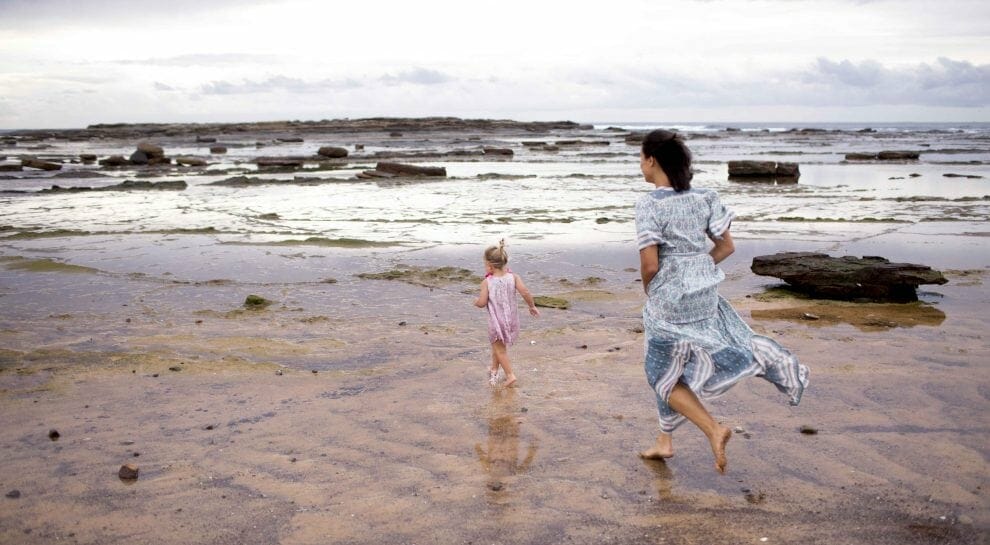By Belinda Williams – The Bumpy Road
We know that motherhood is undoubtedly a challenge but it can be hard to determine what is a reasonable level of stress and when to access the precious wisdom of knowing when you need to ask for help. When my first bub came long with a dramatic entrance into the world my first reaction was relief followed by a persistent hypervigilance. A stream of questioning and self doubt around “should I….” “am I suppose to…” “Does he need….” “Maybe its…..”. In sum, it was all extremely overwhelming and my past experience of new mums providing me with freshly bakes muffins, when I visited them just out of hospital, was making me question my abilities. It was undoubtedly the biggest adjustment to my life to date.
Up to this point, I had been surrounded by abundant antenatal care – regular appointments, tests, measurements, education around what to expect, what my options were etc. I felt equipped, prepared and ready to go. When my son was eventually evicted it was a whole other story. There was the initial “hoo haa” from family and friends and that slowly evaporated and we settled into a new version of normal of life.
Whilst motherhood is a rich and extremely satisfying experience it is undoubtedly a very bumpy road. Many women make the error of explaining away distress in terms of “everyone finds it tough”. This is a very dangerous narrative to hold unquestionably, as it assumes an unending tolerance for distress in a mother’s life. So it is important to shine the light on this spectrum of wellbeing in motherhood so that we have the warning signs in sight and understand the difference between baby blues, post natal depletion and postnatal depression?
The baby blues is a reasonably common term, which technically only covers the period that extends from day three to two weeks post delivery. In this time, there is a significant hormonal change involving nose-diving progesterone and estrogen, which had supported pregnancy to date. Mums can feel vulnerable, teary, lonely and generally overwhelmed (as my experience above can attest). Fortunately, part of this postnatal journey is the arrival of our feel good hormones – oxytocin (the love and attachment hormone stimulated through breastfeeding and skin to skin contact) as well as dopamine. This helps buoy our mood and spirit in the immediate intense postnatal period.
As you navigate through your child’s first year and beyond the relentless physical and emotional strain coupled with sleep deprivation (estimated to be up to 700 hours in the first year), common isolation and social pressures start to take their toll. Women adjust into a new role within their family, their community and their life and for many this is an abrupt and jarring disruption to a pre-baby lifestyle that was engaging and fulfilling. It can take many years to fully connect into this new role and routine.
Physically this can feel like a complete flat lining of energy, digestive issues, brain fog, low libido and emotionally characterized by heightened generalized anxiety, feelings of guilt and shame, a loss of self confidence and a feeling of being unable to cope. This describes is a form of burn out recently coined by Dr Oscar Serrallach* as ‘postnatal depletion’.
All mothers can likely raise their hand up to many of the symptoms of postnatal depletion above. And whilst it does not stretch the imagination to understand why, it does beg the questions of ‘how much is this impacting your quality of life’ and ‘how can you get the support you need to address this’.These are two questions that we need to get better at asking mothers when we recognize the warning signs of depletion.
Psychologically support often involves gently challenging the tightly held beliefs about what it means to be a good mum and to find room to include your own health and wellbeing in that equation. What this looks like is different for each mother. Despite this, the age-old metaphor of fastening your oxygen mask before those around you is apt for the role of self-care for a mother, given the health of the family is commonly pegged to the health of the primary care givers.
Postnatal depletion and the more widely cited postnatal depression (PND) share a significant number of features. Postnatal depression is differentiated by an inability to find joy in experiences that were previously joyous such as a walk on the beach, meeting up with friends or enjoying a nice meal. PND includes specific symptoms of clinical depression often described in terms of pervasive sadness, a sense of hopelessness and possible suicidal ideation. Sleep disruption is another common feature, particularly wakefulness and inability to rejoin sleep. Interestingly a mother suffering from postnatal depression is often not keenly aware of her state, instead it is most commonly recognized by those around her. This highlights the importance of our maternal community to recognize and respond to deteriorate wellbeing when it is evident.
I often get asked how do I delicately check in on a friend. I simply recommend reflecting to them what you have noticed: ‘I’ve notice that recently/for a while you have seemed withdrawn, a little down/teary and I just wanted to check in and see how you were traveling’. When approached with sensitivity, the discomfort often experienced in asking someone about their mental wellbeing is often dissolved by the recipient’s appreciation for their concern and common disclosure. This is often the first step in a mother seeking help.
It is my hope to shift our thinking away from a blanket normalization of distress in motherhood and build insight, appreciation and acceptance for the different levels of tolerance we as mothers have for distress and discomfort after childbirth.
If you are struggling with emotions that are uncomfortable and you are not feeling yourself in a way that concerns you please feel free to reach out to us hello@thebumpyroad.com.au.



